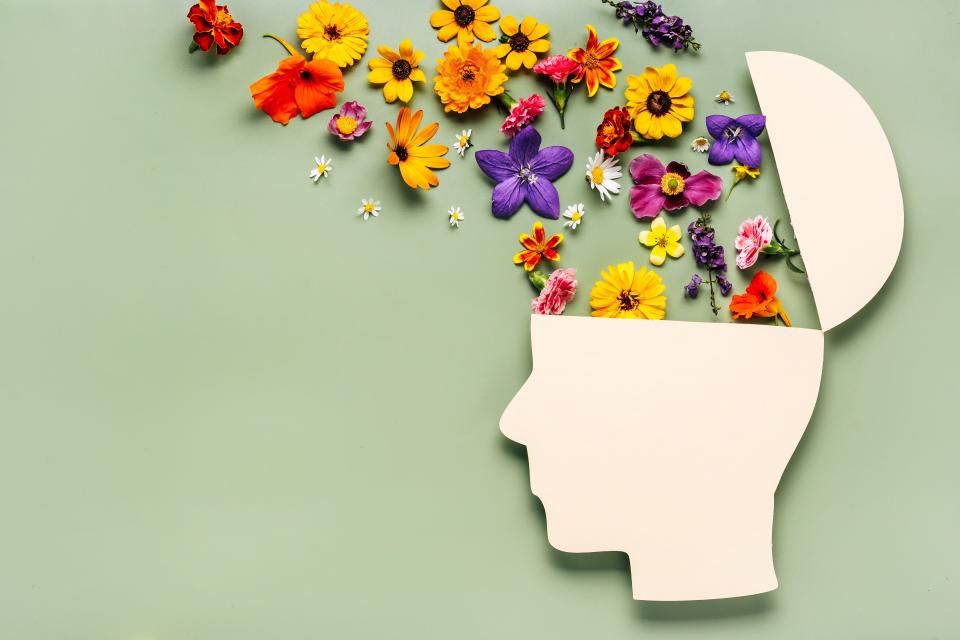Four things to keep in mind during Mental Health Awareness Month in May | Mark Mahoney
As many residents of the Tallahassee, Big Bend and surrounding areas come to grips with the aftermath of three recent tornadoes the importance of mental health cannot be discounted.
The quick change from our everyday life pattern has been significantly disrupted from one day to the next. Add this to the uncertainty of modern times and, obviously, an awareness of mental health concerns. How these disruptions impact our own mental health and how to address these issues need to be at the top of our mind.
May is Mental Health Awareness Month, a national observance started in 1949 by Mental Health America to bring attention to the importance of mental wellbeing. In today’s ever-changing society there are many-varied issues that have the potential to impact our mental well-being.
Resources: Need mental health help after storms, tornadoes in Tallahassee? Try these resources

Why is mental health awareness important?
Despite recent strides in how our society approaches mental well-being, many Americans still don’t have access to high-quality comprehensive treatment and care they need. Just take a look at some of the staggering data about mental health in the United States:
• One in five adults experience mental illness each year• Only 47.2% of U.S. adults with mental illness received treatment in 2021• One in twenty U.S. adults experience serious mental illness each year• Only 65.4% of U.S. adults with serious mental illness received treatment in 2021• One in six youth have a mental health condition, but only half receive treatment• 50% of all lifetime mental illness begins by age 14 and 75% by age 24
We know relationships and the pressures of work and school can impact your mental well-being, but it can be less obvious when the world around you is the root cause of issues. Learn about how the changing world affects mental health and where to start when it comes to conversations and finding help for mental health challenges.
Four things likely affecting your mental health and four things you can do about it
Current events: Violent events impact people across the world. Maybe you have family in a conflict zone, are worried about increases in identity-based hate, or have no personal ties to a particular news event but are constantly seeing graphic images online. A 2022 study found that 73% of American adults reported being overwhelmed by the number of crises going on in the world.

Loneliness: Recent survey data show that more than half of U.S. adults (58%) are lonely, with those who are low income, young adults, parents, part of an underrepresented racial group, or living with a mental health condition experiencing even higher rates of loneliness.
Loneliness increases the risk of developing anxiety and depression, and has been associated with psychosis and dementia. A low level of social interaction was found to have an impact on lifespan equivalent to smoking nearly a pack of cigarettes a day or alcoholism, and was twice as harmful as being obese.
Technology: Having the internet at your fingertips can be a fantastic thing — you can learn, connect with healthcare providers, keep in touch with friends and family — but it isn’t without its downfalls. Exposure to constant [bad] news coverage and contentious political campaigns can make anyone’s mood sour and cause anxiety about what lies ahead.
In fact, almost 60% of young people (ages 18-25) expressed considerable worry about the future of the planet. Social media can cause FOMO, depression, and reduced self-esteem as a result of comparison. Furthermore, the lines between work and personal time are blurred by working from home and after-hours email notifications on your phone, increasing the likelihood of burnout.
Social Drivers: Social drivers (also called social determinants) of health are the conditions in which you live, work, learn and play. These include economic status, education, your neighborhood, access to resources (nutritious food, health care, green space, transportation, etc.), and social inclusion, and can have a far-reaching impact on not just your physical health, but also your mental health. One social driver that seems to be on everyone’s mind is the economy.
Research shows a strong connection between worrying about money and mental distress, and for many people, salaries can’t seem to keep up with rising inflation and cost-of-living expenses. A 2023 Gallup poll found that 42% of Americans are worried that they don’t have enough money to pay their normal monthly bills.

So, what can you do if the world is weighing on you?
Find your support system: Having people around you to support your mental health and emotional health can make all the difference. There are many places to seek support, including friends and family, online support groups or community spaces. Therapy and counseling can also provide you with an extra layer of support. Ultimately, you want a support system that suits your needs and provides a safe space for healing.
Set tech limits/boundaries: You can create space for a healthier relationship with technology by setting boundaries. Do some research to see what works best for you to limit screen time. Decide your reason for logging on before you do, and sign off when you’ve finished doing what you need to do.

Change what you can: Taking actions and advocating for causes important to you can be therapeutic in its own way. Advocacy and action as a form of healing can be powerful. Knowing you are doing what you can do to make a difference can give you hope for the future. Try getting involved in causes near you, join advocacy groups. Get out and vote. Stays informed and speak up on topics that need support.
Find healthy coping skills for dealing with difficult emotions: Sometimes trying to manage your mental health by yourself is too much. Seeking professional help shows strength and can provide you with the support you need to manage life's stressors. Talking to a counselor or therapist can help you identify what might be affecting your mental health and how to best cope.
If you’re taking steps to help yourself but still feel like you’re struggling, take a mental health test at the website noted at the end of this article.
Thanks to Mental Health America for much of the content provided.
In crisis?
Help is available! Call or text 988 or chat 988lifeline.org. You can also reach Crisis Text Line by texting HELLO to 741741.
Additional resources/information
You can access mental health screening tests and learn more about mental health conditions and access information on popular mental health articles at screening.mhanational.org
Please note: Online screening tools are meant to be a quick snapshot of your mental health. If your results indicate you may be experiencing symptoms of a mental illness, consider sharing your results with someone. A mental health provider (such as a doctor or a therapist) can give you a full assessment and talk to you about options for how to feel better.
Some additional topics and their effects on mental health with links are provided for you to take a more in-depth review of various topics:
Negative news coverage and mental health at mhanational.org
Things you can say when you’re not “fine”: mhananational.org/say-when-not-fine
What to say when someone tells you they’re fine bit they’re not: mhanational.org/not-fine
Mark A. Mahoney, Ph.D. has been a Registered Dietitian/Nutritionist for over 35 years and completed graduate studies in Nutrition & Public Health at Columbia University. He can be reached at marqos69@hotmail.com.
This article originally appeared on Tallahassee Democrat: Four things to keep in mind during Mental Health Awareness Month

